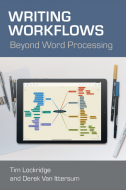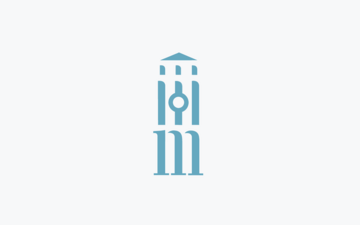UM Press Annotates Digital Writing: Wrap Up

Our #DigitalWriting and #DigitalEducation event wraps this week. Our conversations have explored topics ranging from multimodal translation to digital writing workflows to composing in communities beyond the printed page.
Though the event is ending, our ever-expanding digital margins still have space for your contributions to the conversations. Consider these ideas for adding your own annotations to the topics of the past three weeks:
- Reflections on how you work with multiple languages and modalities in your own field in Sites of Translation: What Multilinguals Can Teach Us About Digital Writing and Rhetoric
- An image or description of how you move from idea to finished written product in Writing Workflows: Beyond Word Processing
- Links to digital community projects you have created in collaboration with others in Beyond the Makerspace: Making and Relational Rhetorics
Then, learn more about #DigitalWriting and #Digital Education with these new and forthcoming titles from UM Press:
- Vidding: A History by Francesca Coppa (University of Michigan Press, 2022)
- 100 Years of New Media Pedagogy by Jason Palmeri and Ben McCorkle (University of Michigan Press, 2021)
- Video Scholarship and Screen Composing by Daniel Anderson (University of Michigan Press, 2021)
- Sound Streams: A Cultural History of Radio-Internet Convergence by Andrew J. Bottomley (University of Michigan Press, 2020)
- Rhetorical Code Studies: Discovering Arguments in and Around Code by Kevin Brock (University of Michigan Press, 2019)
- Developing Writers in Higher Education: A Longitudinal Study, edited by Anne Ruggles Gere (University of Michigan Press, 2019)
- Memetic Rhetorics: A Toolkit for Ethical Meming by Erika M. Sparby, (University of Michigan Press, forthcoming)
- Supporting the Growth of Graduate Writers: A Film by Talinn Phillips and Rachael Ryerson (University of Michigan Press, forthcoming)
As we conclude the pilot project, we would like to thank the editors and authors who have invited readers to respond in the margins of their books. We also thank all who have contributed to the project by sharing their annotations. We have enjoyed reading your annotations and seeing you engage with the scholarship in the University of Michigan Press open access books.
To view the UMP Annotates blog post series, visit https://blog.press.umich.edu/tag/um-press-annotates.
This post was written by Michelle Sprouse, a PhD candidate in the University of Michigan’s department of English and Education and UM Press editorial intern. Michelle currently oversees the UM Press Annotates pilot program. In her own research, she explores social annotation as a tool for connecting reading and writing in post-secondary contexts.





